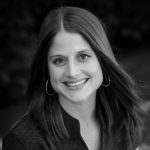
by Ashley St. John
July 15, 2019

You made the transition from commercial real estate into learning. What led you into L&D?
I was working for Prudential Insurance Co. and I was in finance after pursuing my MBA, and I just wasn’t happy. It just wasn’t a fit for my skills, my values, my interests. I was really kind of at a loss, and I thought — what am I going to do next? I was sitting in a training class one day as a participant, and watching the instructor and thinking, wow, that guy’s got a really interesting job. I wonder what that’s all about? And then, by the afternoon of watching him, I realized: I have those skills. I’m going into — what was then — corporate training. That was, I hate to admit it, 20 years ago. So, it was literally that epiphany of trying to figure out how I was going to find something that I was interested in and passionate about. So, I kind of migrated slowly. I volunteered to do as much training as possible while I was still at Prudential. I got a little help with some coursework to make the transition. And then I moved into it, and I’ve never looked back or regretted it.
It’s been a long journey to CLO. What were some key formative experiences you had that allowed you to accelerate to where you are now?
I was working for a company that I loved, a small startup company within Merrill Lynch. It was an amazing, high-energy, really successful place, and worked closely with the executive team to cultivate this culture. As part of that experience, I realized the power of aligning culture with the values of the organization and educating people to make sure we were all literally going in the right direction. We were so phenomenally successful, and it was such a fun place to work, it made me realize how much companies would gain by focusing more on education and alignment with culture and strategy. I loved the company so much, and it was really growing, but I needed help because I couldn’t figure out how to take the organization to the next level. So I actually took myself back to school in 2004 and I went part-time for five years to get my second master’s in learning and organizational change. That just helped me bring frameworks and thinking to the job. So, that’s I think part of the story of trying to reinvent yourself as you need to, to figure out what it takes to get to the next level.
Were there particular figures who were instrumental along the way?
I met a lot of phenomenal people as part of the [Master of Science in Learning and Organizational Change] program. [Instructor] Dorie Blesoff for helping me to understand what it really takes to be a consultant, which I think is a core skill in this role, and how to lead and manage change. I also had another instructor and mentor, John Bausch, who is a tough love kind of person, who said, “If you feel like you don’t have confidence, I don’t know what to say — just get over it.” There wasn’t much more advice in terms of how to actually do that! But there were a lot of people who stepped up and pushed me out there and said, you know, “Get out on the edge of that limb, and find a way to fly.”
What’s some of the best career advice you’ve received?
Besides “just get over it,” which is right up there, I had a gal pass advice on to me a few years ago that she had received: It’s hard to be strategic in the moment. The message was: Create the time and the space that you need to think. If you want to be a thought leader and a strategic thinker, you’ve got to find a way to create some protected thinking time. And unfortunately that seems to fall off the list for so many people — they don’t make it a priority.





